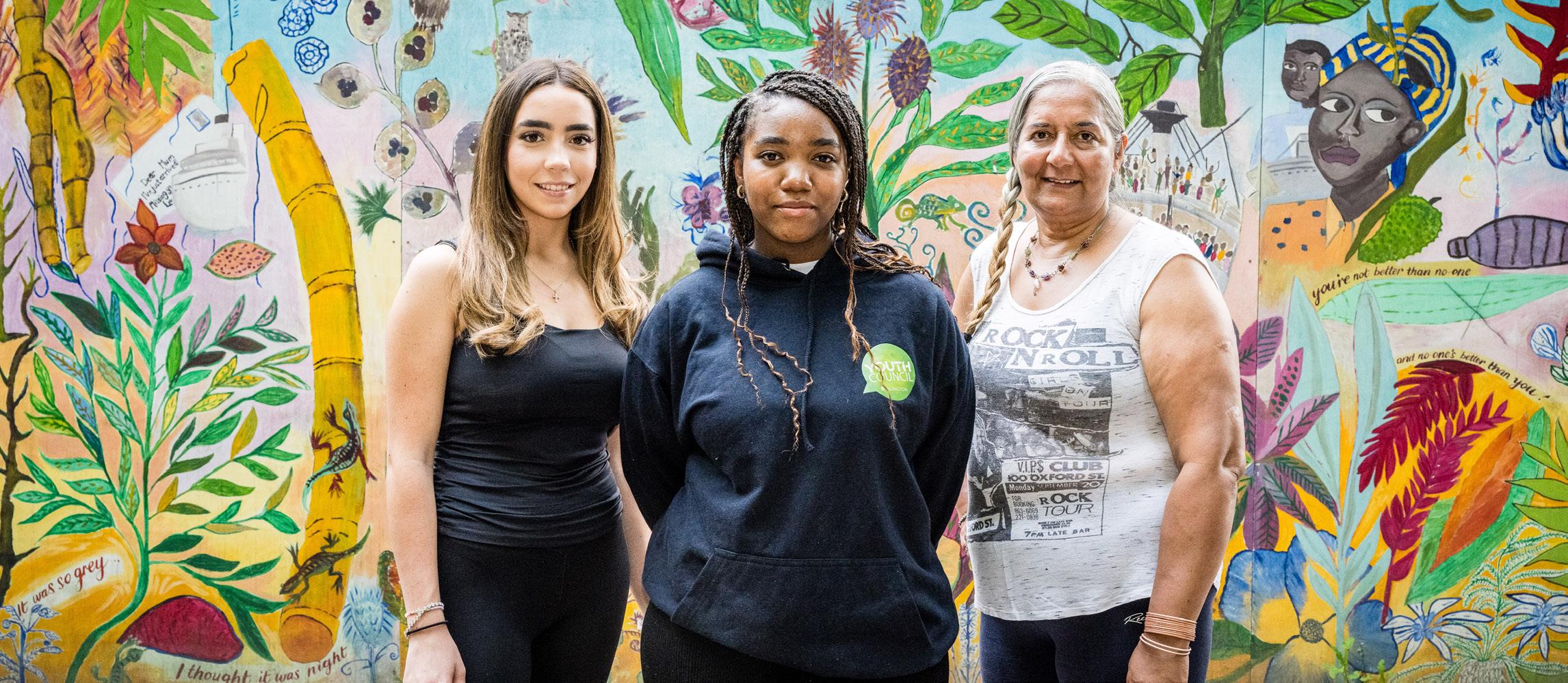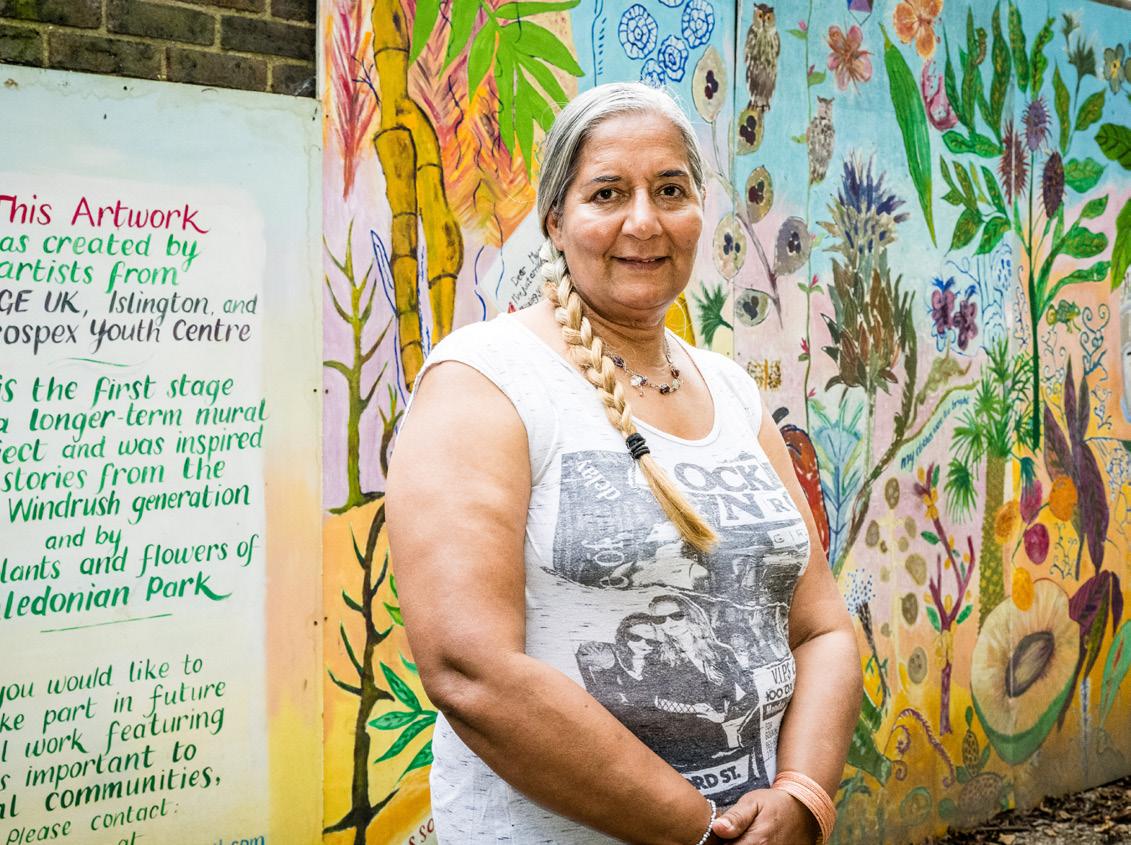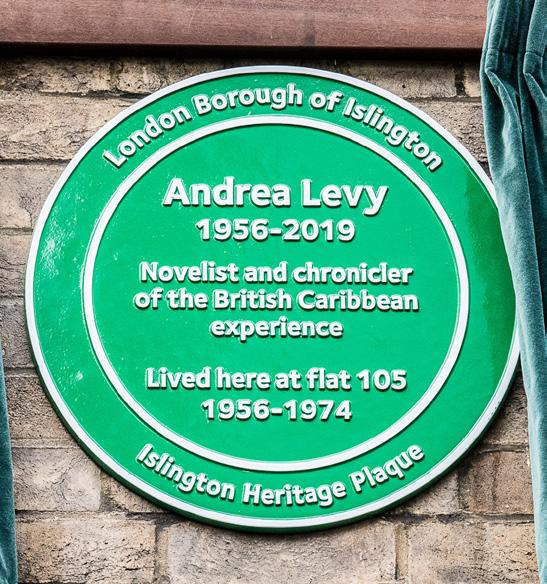
3 minute read
Centre of the community
Ahead of the opening of a new Black Cultural Centre in Islington, we talk to some of the people involved in its creation about why it’s needed, the services it will offer, and how the centre will bring Islington’s Black community together
Last year, the council ran its biggest-ever engagement project, Let’s Talk Islington, to find out residents’ experiences and opinions of inequality in the borough. A huge number of you took part, including in offshoots of the project such as Let’s Talk Being Black in Islington, which saw residents join in workshops and answer surveys to share their views.
What’s going to come of it? Feedback was varied – and the outcomes will be, too (watch this space for updates). But one of the recurring themes was that people from the Black community, and the community groups that serve them, wanted a dedicated space for support; a space where the community can come together and celebrate Black history and culture.
“Residents were very open about the support and services they need. Discussions explored why the Black population is reducing in Islington, housing concerns, employment support and health inequalities – as well as experiences of racism and discrimination,” says senior project manager Keisha Bristol. “Many residents spoke of the importance of harnessing community power and how bringing people together to address some of these issues could build connections, and help foster a greater sense of belonging for the
Black community.” The idea for a new Black Cultural Centre was born.
Throughout the summer, the challenging inequality and events team, Keisha, Isabella and Sharie, met with local community centre leaders to raise awareness of the plans for a new cultural centre. They also ran workshops and an online survey, to make sure the centre genuinely meets local people’s needs.
The council was also on the lookout for somebody rooted within the Black community in Islington to run the centre – the new operator will be announced at the end of October, with a view to the centre being opened by the end of this year. “The aim is to provide a safe space for residents of African and Caribbean heritage to receive culturally appropriate support and services, that will tackle issues that were raised through the engagement,” Keisha explains.

The Centre will celebrate the history, achievements and contributions of Black people, showcasing vibrant stories through art, music, dance, drama, literature and food.
“I am so pleased that a Black Cultural Centre will now be set up in Islington,” says Rani, trustee at Hanley Crouch Community Centre and participant in the project. “We need a future where equality and achievement for all is a reality, and I believe we need to understand our past in order to build a meaningful future. We all need to support this venture in any capacity we can.”

Others are looking forward to having a place that brings people together. “The cultural centre is a great idea. It will create a sense of unity,” says Islington Young Mayor Ameera. “In a place as big as London, it is hard to feel that. The centre will bring together people of a similar background, with similar experiences, and show us we are not alone. I hope it will become a place anyone can go to feel safe and united.” A dedicated space to bring people together will not only harness a sense of belonging, but provide Black residents
Celebrating Windrush 75
Sir Geoffrey Palmer, scientist and human rights activist with an opportunity to share their knowledge and experiences. “I hope that many events and activities will be held there, and that young people will attend on school trips,” says youth cllr Tyra. “It should be a fun place, where all are welcome. This centre, to me, will mean a place to share my knowledge, gain more knowledge, and connect with different people.”
For more information and updates, visit: islington.gov.uk/BlackCulturalCentre
This year marks 75 years since the Empire Windrush arrived at Tilbury Docks, Essex, bringing more than 1,000 Caribbean migrants to the UK – some of whom settled in Islington. Here are just some of the famous local faces who were descended from the Windrush generation:
Geoffrey Palmer came to the UK in 1955, joining his dressmaker mother who had travelled here before him. He lived with her and his brother in a one-bedroom flat on Caledonian Road. Despite facing multiple rejections, not to mention racism, Geoffrey achieved a PhD in grain science and technology, for which he was later honoured with an OBE.
Alongside his academic career, Geoffrey was a human rights activist and heavily involved in charity work. He was knighted in 2014 for services to human rights, science and charity.
Andrea Levy, author
Andrea Levy was born at Whittington Hospital in 1956, to Jamaican parents who immigrated to the UK as part of Windrush. She grew up on the Blackstock Estate and attended Highbury Hill Grammar (now Highbury Fields School). Andrea went on to write celebrated and influential works that explored the experiences of the Windrush generation in the UK. Sadly, Andrea died of cancer in 2019. Her life and work was celebrated with a plaque on her childhood home on Elwood Street, Highbury, in March 2020.

Troyton Bunbury BEM, school caretaker
Troyton Bunbury grew up in Archway, having travelled here from Guyana – following on from his parents – in the 1970s, when he was 11 years old. Troyton was a dedicated caretaker at St Michael’s Primary School in Highgate for 20 years. He was recognised for his services to education with a BEM in this year’s honours list.










